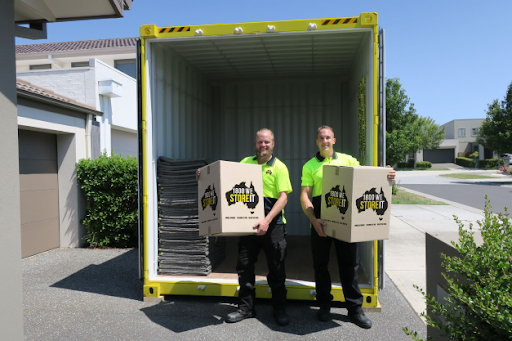Climbing is a wonderful skill that develops between 8-12 months and continues on into toddlerhood as they become more and more mobile. Early climbing provides your baby with the opportunity to practice balance, motor planning, depth perception, and risk taking.
Is climbing good for babies?
Climbing plays a key role in early childhood motor skills development. A study from PlayCore found evidence that climbing at a young age helps hone spatial and directional awareness, and also boosts physical skills such as balance, hand and foot coordination, and agility.
What does it mean if your baby is a climber?
While some children seem to be climbers by nature, it doesn’t mean that your child will only be happy when they’re scaling tall (and not-so-tall) structures. At the heart of the desire to climb is just that basic toddler desire to be active.
How do I stop my baby from climbing?
Try a sleep sack. Sleep sacks provide comfort to young children, similar to swaddles. A sleep sack may restrict your child’s limbs just enough to make climbing out of the crib difficult, but your child may also find their way out of an ordinary sleep sack.
Should I let my baby climb stairs?
Once your child starts walking, it’s safe to let her climb stairs on her feet, holding your hand and the railing for support. … By 24 months old or so, your child will probably be able to go up and down stairs on her own while holding onto the railing, though you should still stay close by to prevent slips and falls.
When can a child go up and down stairs alone?
By 2 years: By his second birthday, your child should be able to walk up and down stairs on his own. He may still hold on to the railing at this age. By 3 years: Around the 3-year mark, your toddler will be walking up the stairs just like adults do alternating feet for each step.
Why do babies climb all over you?
Have you ever wondered why some kids hang, lean, and climb on EVERYTHING? Well, when kids hang, lean, climb, push, and pull, they gain access to a certain type of sensory input called proprioception. Proprioception is related to the idea of body awareness.
Do 1 year olds climb?
By 12 months, your newly minted toddler may start climbing up stairs, and she’ll continue exploring her environment between her first and second birthday. By age 2, most toddlers can climb up and down on furniture without help.
Is climbing a milestone?
Climbing (12 to 24 months) Climbing is an important physical milestone, though. It’ll help your child develop the coordination he needs to master skills like walking up steps.
Can a toddler show signs of autism and not be autistic?
About one in six children have some kind of speech delay or impairment. Oftentimes, children aren’t diagnosed with an autism spectrum disorder until age four or five, but the child may begin showing signs by the time he or she is two.
Is climbing a fine motor skill?
Climbing increases muscle tone and strength in both fine and gross motor movements. The act of climbing sharpens visual perception and motor skills as they decide where to place a foot or hand to move up or down. Problem-solving and decision-making skills are also enhanced through climbing.
How do you discipline a 1 year old?
How to Discipline a One Year Old
- First, prevent and protect. …
- Set consistent rules and clear boundaries. …
- Take deep breaths to stay calm. …
- Model good behavior and help them practice. …
- Use inductive discipline, not punishment, to teach. …
- Praise good behavior and focus on effort rather than results. …
- Be patient and positive.
Do sleep sacks prevent climbing?
If your child’s crib has a tall side, turn the crib around so that the short side is against the wall. Sleep sacks can help to discourage climbing by limiting your child’s ability to lift their leg up over the crib rail. (Unfortunately a sleep sack won’t stop escape artists that swing both legs over at the same time.)
Why does my newborn crawl up my chest?
After a period of relaxation and awakening (this stage of a baby being quietly alert is thought to be the first part of exploring their new environment), spontaneous sucking and rooting behaviors begin. The baby will begin using their stepping reflex to push against the parent’s abdomen and crawl toward the breast.
Why does my son jump all the time?
Climbers and Jumpers are Craving Proprioceptive and Vestibular Sensory Input! They are craving that heavy work, deep muscle, head tilting movement. And climbing and jumping gives them the input they crave. So you have a child who loves to jump and climb on EVERYTHING.
Are jumpers safe for babies aap?
The overall message from experts is that jumping devices are okay as long as they are not used for more than a short period of time (15 minutes was the most common recommendation) and they are freestanding items and NOT attached to doorways.
How do babies go up and down stairs?
When you need to carry a child on the stairs:
- Avoid carrying other items. The child should be the only thing in your arms.
- Keep one hand on the handrail to help prevent a fall in case you trip or slip.
- Make sure the child is in your arms and not in a stroller or carriage while on the stairs.
What age are stairs safe?
Most children are ready to start using the stairs by 18 months of age. At this time, children can usually walk up stairs, but they don’t yet have the balance to walk down them safely. Teach and show your child how to walk up the stairs by holding a handrail and taking one step at a time.
When can I take baby gates off stairs?
Install gates in homes with children between 6 months and 2 years of age. If possible, remove the gates when the child turns 2, or when the child has learned to open the gate or climb over it.
How do you teach a baby to climb stairs?
The AAP suggests teaching your child to walk down the stairs using the handrail once she is able to walk comfortably. Place her at the top of the stairs, if she hasn’t climbed them herself already, and stand below her. Instruct her to grab the handrail and slowly step down one step at a time.
At what age do children alternate feet on stairs?
The skill of alternating feet while climbing up or going down the stairs isn’t very refined until sometime around the end of your child’s third year. Full mastery of this will not occur until about a year later, possibly as late as 5 years of age.
Why does my toddler Lean On Me?
Cuddling and Snuggling with You Just when you can’t deal with one more tantrum or one more No! your toddler plops herself down on your lap, snuggles closely, and leans her head onto your shoulder. … When your toddler cuddles with you, she is showing that she knows you are always there to provide her comfort.
Why does my autistic child jump?
Many children with autism love to jump and bounce. It’s a particularly enjoyable repetitive behavior that can provide both soothing and stimulating sensory input. But jumping and bouncing in a crib can definitely become a problem. As in your case, the crib may not be able to hold up to all that jumping.
Why do some kids climb?
Children climb for fun, enjoyment, challenge, the sense of danger, and to access the top for success and observation. … They also climb to learn. Children are wired to learn and learning by climbing carries benefits in skill development, health, fitness, and injury prevention. All healthy children are born to climb.
What to get for a baby who likes to climb?
The Best Toddler Climbing Toys of 2021
- Children’s Factory Soft Tunnel Climber. …
- Eezy Peezy Monkey Bars Tower. …
- Step2 Naturally Playful Woodland Climber. …
- Little Tikes Climber. …
- ECR4Kids GUS Climb Caterpillar Tunnel. …
- ECR4Kids SoftZone Corner Climber. …
- Step2 Sports-Tastic Activity Climber.
What age can a child climb a ladder?
Children with active parents who help them learn to climb can frequently climb playground ladders between 3 and 4, though they should always be supervised. Full climbing skills often do not develop until children are school-aged, around 6 or 7 years, according to Dr. William Sears.
What should a 21 month old be doing?
Though individual children develop at different rates, at around 21 months, you may see your little one do the following: Learn to hide and seek. Around this age, your toddler may love to play hiding games. She’ll remember where things are hidden and will enjoy playing hide and seek with you, too.
What should a 24 month old be able to do?
At 24 months, most children are able to: Run well. Walk up and down stairs without help. Jump in place and kick a ball.


